Port of Spain, Trinidad and Tobago. 14 October, 2021. In the Caribbean, the leading causes of blindness are glaucoma, cataract and diabetic retinopathy (a complication of diabetes). According to the Vision Atlas, 6.2 million persons in the Caribbean were reported to have vision loss, with an estimated 260,000 persons reported to be blind in 2020.
Information gathered from eighteen (18) Caribbean countries (Antigua and Barbuda, Bahamas, Barbados, Bermuda, Belize, Cuba, Dominica, Dominican Republic, Grenada, Guyana, Haiti, Jamaica, Puerto Rico, St. Kitts and Nevis, St. Lucia, St. Vincent and the Grenadines, Suriname and Trinidad and Tobago) with a population of 44 million, showed that the crude prevalence of blindness was 0.60%, and the prevalence of all vision loss was 13.20%. Many of the persons affected were females at 52%.
Global statistics reveal that for 2020, a total of 596 million persons had distance vision impairment worldwide, of this number 43 million were blind. Projections for 2050, indicate that an estimated 885 million persons may be affected by distance vision impairment with 61 million expected to experience blindness.
CARPHA’s vision for the Caribbean is a region where the health and wellness of the people are promoted and protected from disease, injury and disability, thereby enabling human development in keeping with the belief that the health of the Region is the wealth of the Region.
Although there are no projects that directly address vision impairment, CARPHA in collaboration with its public health partners is implementing initiatives to address risk factors such as unhealthy diets, use of harmful substances and poor physical activities. This in turn, will help reduce the risk of disability due to complications associated with poor blood sugar and blood pressure management.
Efforts to improve the standards of care for diabetes through the implementation of the CARPHA Guidelines on the Management of Diabetes in Primary Care in the Caribbean, and training of health care workers from the CARPHA Member States will also contribute to the prevention of vision impairment and blindness due to diabetes.
Access to eye care services can reduce visual impairment. CARPHA urges Member States to strengthen health systems to improve eye health services with emphasis on reaching the vulnerable and those most in need. Governments should commit to integrating eye care into the universal health care system.
World Sight Day is celebrated annually on the second Thursday in October. The focus of the day is to bring awareness to blindness and vision impairment as a major public health issue and blindness prevention. 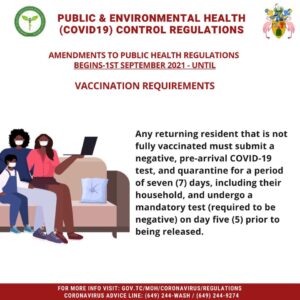
The 2021 commemoration observed on 14th October, seeks to encourage persons to think about the ‘importance of their own eye health.’
Our eyes are working hard during the COVID-19 pandemic. We have been indoors, in front of our screens, and probably missed our eye test appointments. Now more than ever, we need to protect and prioritize our eyesight. There are simple things you can do for yourself to prevent the development of serious eye issues:
- Take screen breaks for at least five minutes every hour
- Spend time outside. Increased outdoor time can reduce the risk of myopia (near-sightedness)[3]
- Get an eye test. A complete eye exam can detect eye conditions such as glaucoma before it has an effect on your sight. The earlier an eye condition is identified, the easier it is to treat.
- Eat a healthy balanced diet and engage in physical activity. These are crucial steps in maintaining a healthy weight, controlling obesity, and preventing diseases such as diabetes, all of which can impact eye health.
- If you have diabetes, you should have your eyes checked every year
Your sight cannot be taken for granted. It is time to LOVE YOUR EYES!

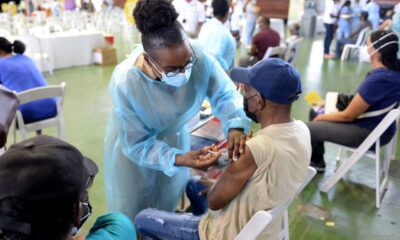
 Health3 days ago
Health3 days ago
 TCI News6 days ago
TCI News6 days ago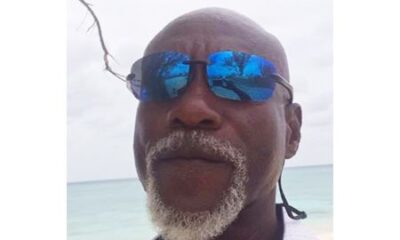
 Crime1 week ago
Crime1 week ago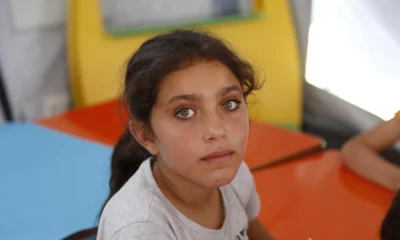
 TCI News1 week ago
TCI News1 week ago
 Bahamas News1 week ago
Bahamas News1 week ago
 Caribbean News1 week ago
Caribbean News1 week ago
 Bahamas News1 week ago
Bahamas News1 week ago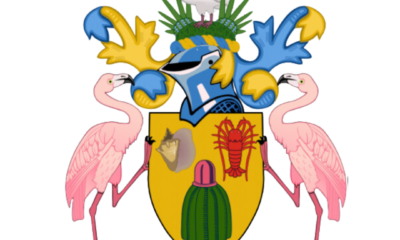
 Bahamas News1 week ago
Bahamas News1 week ago









